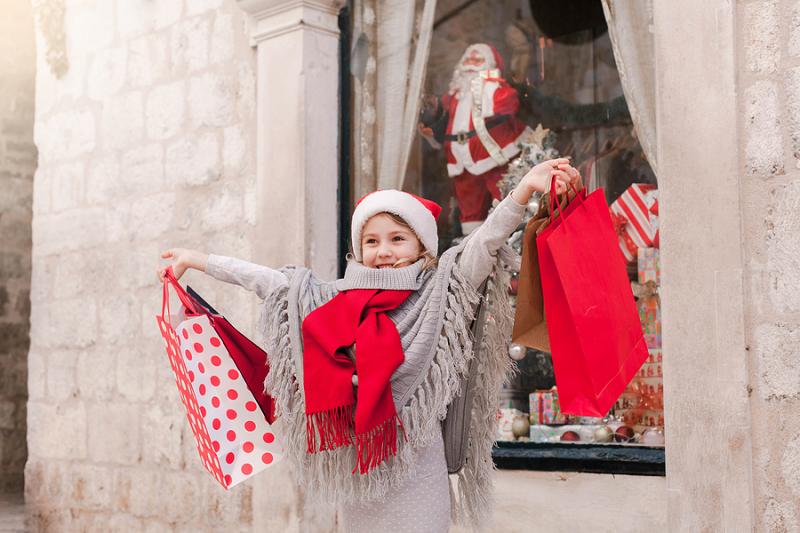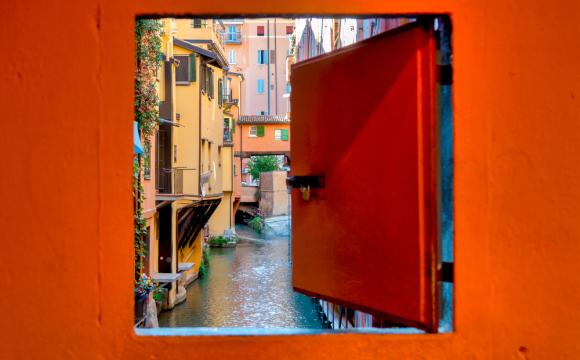With December comes the most important month for gift exchanges on the Italian calendar, beginning with the Festa dell’Immacolata on December 8th - officially kicking off the Christmas season - and ending with the Epifania (of Festa della Befana) on January 6th, when the holidays come to a close.
Until a few decades ago, Christmas in Italy was more a religious celebration than a commercial one, revolving around family and faith. Today, elaborate decorations, holiday parties, and carefully chosen gifts have become fundamental elements of the holiday and you’ll need to know the ins and outs of graciously giving and receiving gifts to navigate the season successfully.
Here are some guidelines for gift-exchanging etiquette in Italy, as well as some helpful vocabulary for choosing, presenting, and receiving holiday gifts:
Holiday Gift Etiquette in Italy
Let it be said that Italians are generally extremely gracious and polite, so even if you accidentally break a cultural norm it is highly unlikely that you will offend anyone. For example, I have seen stern warnings online about not giving soap as it could be interpreted as a hint regarding personal hygiene, which is the silliest thing I have ever heard. In fact, high-end soaps, perfumes, and bath foams are all the rage and make for excellent hostess gifts, especially if artisan or from a historic “profumeria” (perfume shop).
Also, most independent shops in Italy take great pride in their personalized service, so will guide you towards the perfect gift if you let them know the basics about the recipient and occasion. Don’t let the stern online warnings against presenting chrysanthemums scare you, for example - no Italian florist would ever sell you a funeral flower if you tell them you are invited to dinner.
There are a few things you should keep in mind, however.
Wine and food are very popular gifts; during the holiday season, one of the most common gifts is a “cesto natalizio”, or Christmas basket bursting with sweet and savory goodies. Many Italians are very choosy about their cuisine and know the difference between artisan and commercial food, so opt for quality above quantity. If giving wine, purchase from a wine shop where there is staff to guide you rather than a supermarket.
Clothing and accessories can be a fine gift, especially if made by a local artisan or designer but be aware that making returns and exchanges can be complicated (and sometimes impossible) in Italy so be absolutely sure about the size, color, and style. It’s easier to exchange items from larger fashion chains or department stores, but Italians often appreciate higher quality, designer labels more than mass-produced fast fashion.
Home décor has become more popular over the past few years, and holiday decorations can be a light-hearted seasonal option. Christmas markets showcasing local artisans are popping up across Italy, and hand-made candles, wooden ornaments, holiday-themed ceramics, or other winter-wonderland décor make for excellent informal gifts for both close friends and casual acquaintances.
Gift Vocabulary for the Holidays
Dare, Regalare, Fare un Regalo
Though the verb “to give” in Italian is “dare”, when giving an item as a gift, it is more common to use the verb “regalare”, or “to gift." To give something as a gift requires the verb “to make” rather than “to give”...so in Italian, you make a gift not give a gift!
Vorrei regalare due bottiglie di vino rosso alla mia vicina di casa. - I would like to give/to gift two bottles of red wine to my neighbor.
Vorrei fare un regalo di due bottiglie di vino rosso alla mia vicina di casa. - I would like to give a gift of two bottles of red wine to my neighbor.
Regalo, Pensiero, Dono
There are a number of ways to express the notion of a “gift” in Italian. The most common is “regalo” (or “regalino” if the gift is small or informal). You will often come across the use of “pensiero” or “pensierino” to indicate a small or informal gift as well, which could be loosely translated as a “token”. On the other hand, “dono” is used to indicate an important or formal gift; at Christmas, gifts left by Santa are often referred to as “doni” since they are special and magical (of course!).
I nostri amici ci hanno portato un cesto natalizio come regalo. - Our friends brought us a Christmas basket as a gift.
Devo scegliere un pensiero per la mia mamma. - I need to choose a small gift for my mom.
Babbo Natale ti ha lasciato i doni sotto l’albero? - Did Santa leave you gifts under the tree?
Note: It’s considered good form to refer to a gift you are about to give with modest language, even if it is expensive or important. Opt for “Vi ho portato un piccolo pensiero” (I brought you a small token of my esteem) rather than “Vi ho portato un regalo” or “Vi ho portato un dono”.
Accepting Gifts in Italian
A “cesto natalizio” that is wrapped in cellophane is generally placed beneath the tree and opened on Christmas day, but otherwise, holiday gifts in Italy are opened as soon as they are given, which means you need to be prepared with phrases of gratitude and appreciation!
The standard, of course, is “grazie” (thank you), which is perfect for any gift or occasion. Other versions include:
● Grazie mille!
● Mille grazie!
● Molte grazie!
● Ti/Vi ringrazio tanto!
● Grazie tante!
● Grazie infinite!
● Grazie di cuore!
You can also add “Che bel regalo” or “Che bel pensiero!” (What a beautiful gift!) and the classic “Ma non dovevi!” (You shouldn’t have!).
To say “you’re welcome”, choose:
● Prego
● Di niente
● Non c’è di che
● E di che
● Di nulla
Here’s to a happy holiday season, filled with peace, love, and lots of “regali”!













